The Makeup Ingredients That Can Trigger Acne: A Comprehensive Guide
Related Articles: The Makeup Ingredients That Can Trigger Acne: A Comprehensive Guide
Introduction
With great pleasure, we will explore the intriguing topic related to The Makeup Ingredients That Can Trigger Acne: A Comprehensive Guide. Let’s weave interesting information and offer fresh perspectives to the readers.
Table of Content
The Makeup Ingredients That Can Trigger Acne: A Comprehensive Guide

Acne, a common skin condition affecting millions worldwide, can be exacerbated by certain makeup ingredients. Understanding these ingredients and their potential impact is crucial for individuals seeking to maintain clear and healthy skin. This comprehensive guide delves into the most common culprits, providing insights into their mechanisms, alternatives, and practical tips for avoiding them.
The Science Behind Acne and Makeup
Acne develops when hair follicles become clogged with oil, dead skin cells, and bacteria. While genetics and hormones play significant roles, external factors like makeup can contribute to this process. Certain ingredients can:
- Increase Oil Production: Some ingredients, like mineral oil, can clog pores and create a greasy film on the skin, leading to increased oil production and acne.
- Irritate and Inflame: Certain chemicals, like fragrances and dyes, can irritate sensitive skin, triggering inflammation and exacerbating acne.
- Block Pores: Heavy, thick formulas and ingredients like silicones can physically block pores, preventing the natural shedding of dead skin cells and promoting breakouts.
Common Makeup Ingredients to Avoid
1. Comedogenic Oils:
- Mineral Oil: While often used in makeup for its moisturizing properties, mineral oil can be comedogenic, meaning it can clog pores and contribute to breakouts. This is due to its large molecular size, which can trap oil and debris within the pores.
- Lanolin: Derived from sheep’s wool, lanolin is another ingredient known for its moisturizing properties. However, it can also be comedogenic, particularly for individuals with sensitive skin.
- Coconut Oil: Despite its popularity in skincare, coconut oil is highly comedogenic and can worsen acne. Its fatty acids can clog pores, leading to inflammation and breakouts.
2. Silicones:
- Dimethicone: A common silicone used in makeup for its smoothing and blurring effects, dimethicone can create a barrier on the skin, potentially trapping oil and debris.
- Cyclomethicone: This silicone is often used in liquid foundations and powders for its lightweight texture. While it may not be as heavy as other silicones, it can still contribute to clogged pores.
3. Fragrances and Dyes:
- Artificial Fragrances: Often added to makeup for scent, artificial fragrances can irritate sensitive skin, leading to inflammation and acne.
- FD&C Dyes: These synthetic dyes are frequently used in makeup to add color. They can be irritating and allergic, potentially triggering breakouts in susceptible individuals.
4. Other Ingredients:
- Stearic Acid: This fatty acid is commonly found in makeup as an emulsifier and thickener. While not inherently comedogenic, it can be problematic for those with sensitive skin.
- Isopropyl Myristate: Often used as a solvent and emollient, isopropyl myristate can clog pores and contribute to acne.
- Sodium Lauryl Sulfate (SLS): This surfactant is commonly found in cleansers and makeup removers. While it’s not a direct cause of acne, SLS can strip the skin’s natural oils, leading to increased oil production and breakouts.
Alternatives to Avoid Acne-Triggering Ingredients
- Choose Oil-Free and Non-Comedogenic Products: Look for labels that explicitly state "oil-free" and "non-comedogenic." These products are formulated without ingredients known to clog pores.
- Opt for Water-Based Formulas: Water-based formulas tend to be lighter and less likely to clog pores compared to oil-based products.
- Prioritize Natural Ingredients: Consider products containing natural ingredients like aloe vera, green tea, and hyaluronic acid, which are known for their soothing and hydrating properties.
- Read Labels Carefully: Always check the ingredient list before purchasing any makeup product. Familiarize yourself with common acne-triggering ingredients and avoid those that are known to cause problems.
Tips for Minimizing Acne Risk
- Cleanse Twice Daily: Wash your face twice a day with a gentle cleanser to remove dirt, oil, and makeup.
- Exfoliate Regularly: Exfoliate gently one to two times a week to remove dead skin cells and prevent clogged pores.
- Wear Sunscreen: Protect your skin from harmful UV rays with a broad-spectrum sunscreen with an SPF of 30 or higher.
- Avoid Touching Your Face: Resist the urge to touch your face throughout the day, as this can transfer bacteria and oil.
- Change Your Pillowcase Regularly: Wash your pillowcase at least once a week to prevent the buildup of oil, dirt, and bacteria.
- Consider a Dermatologist Consultation: If you experience persistent acne, consult a dermatologist for personalized advice and treatment options.
FAQs about Makeup Ingredients and Acne
Q: Can I use makeup if I have acne-prone skin?
A: Yes, you can use makeup, but it’s essential to choose products carefully. Opt for oil-free, non-comedogenic formulas and avoid ingredients known to clog pores.
Q: What are the best makeup products for acne-prone skin?
A: Look for products labeled as "oil-free," "non-comedogenic," and "hypoallergenic." Mineral makeup, particularly loose powder foundations, is often well-tolerated by acne-prone skin.
Q: Can I use makeup remover if I have acne?
A: Yes, but choose a gentle, oil-free makeup remover. Avoid products containing ingredients like mineral oil or coconut oil, which can clog pores.
Q: Is it okay to use foundation if I have acne?
A: Yes, but choose a lightweight, oil-free foundation that won’t clog pores. Consider using a tinted moisturizer or mineral makeup for a more natural look.
Q: Does makeup cause acne?
A: Makeup doesn’t directly cause acne, but certain ingredients can contribute to breakouts by clogging pores, irritating skin, or increasing oil production.
Conclusion: A Mindful Approach to Makeup and Acne
While makeup can be a valuable tool for enhancing one’s appearance, it’s crucial to be mindful of ingredients that can trigger acne. By understanding the potential culprits and choosing products wisely, individuals with acne-prone skin can enjoy the benefits of makeup without compromising their skin health. Remember to read labels carefully, opt for oil-free and non-comedogenic formulas, and prioritize products with natural, non-irritating ingredients. With a thoughtful approach, you can achieve a flawless look while maintaining clear and healthy skin.
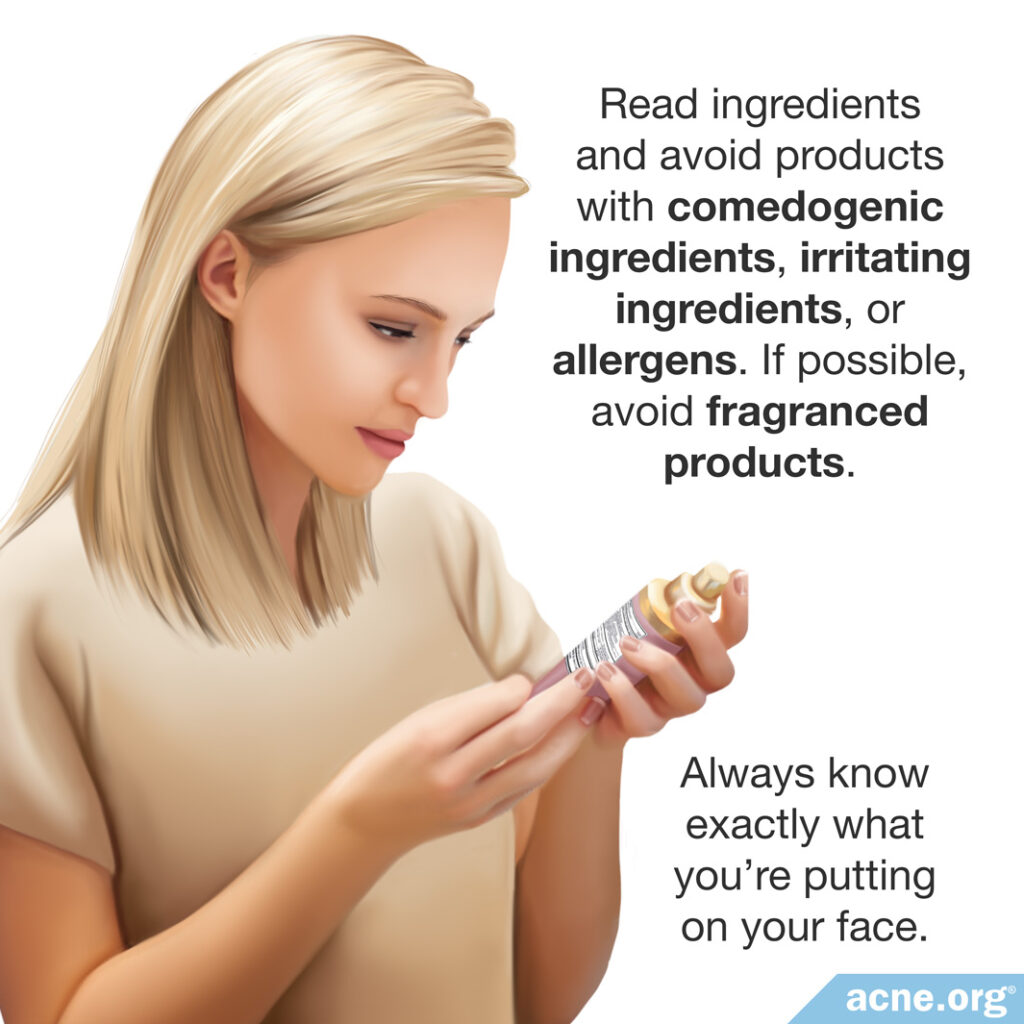

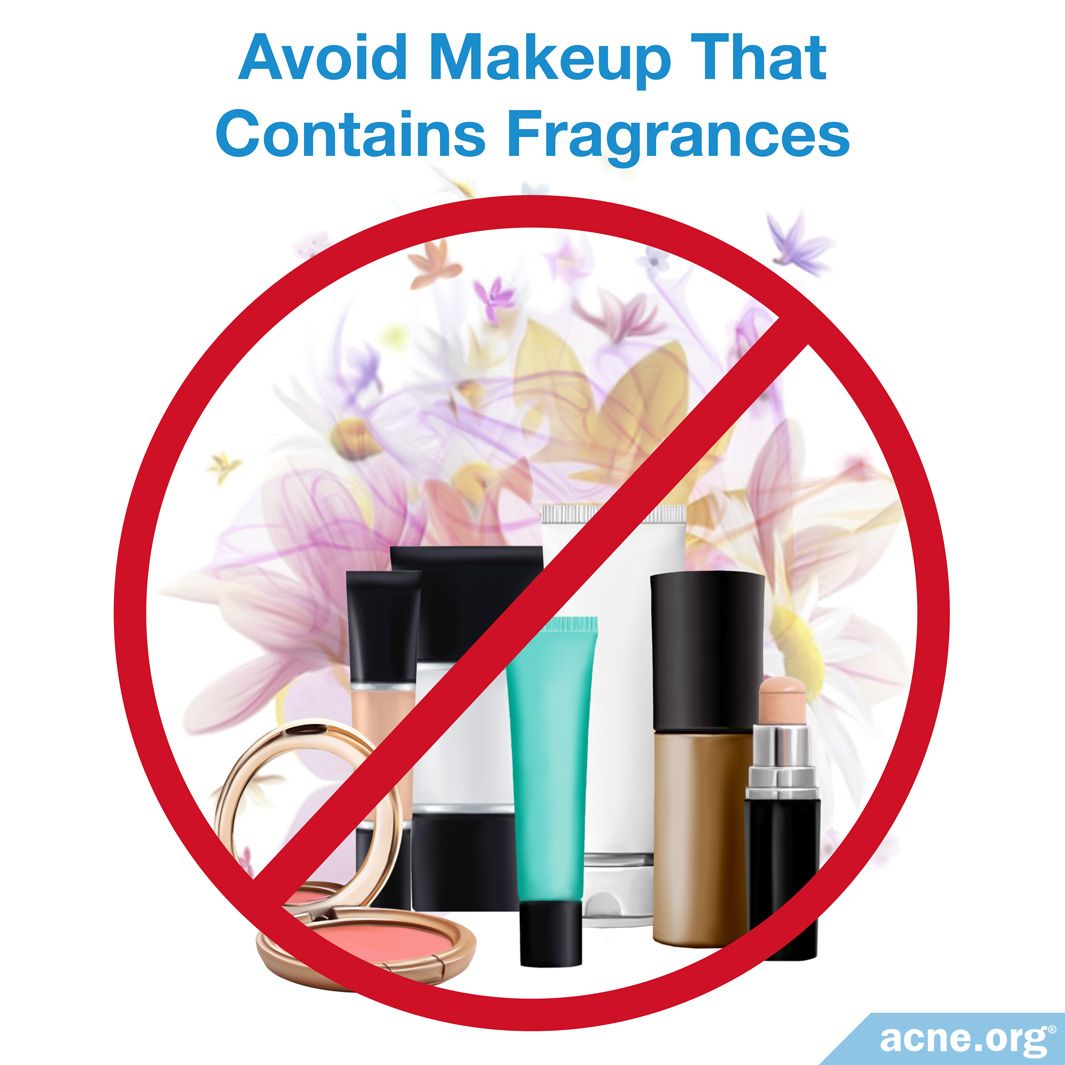
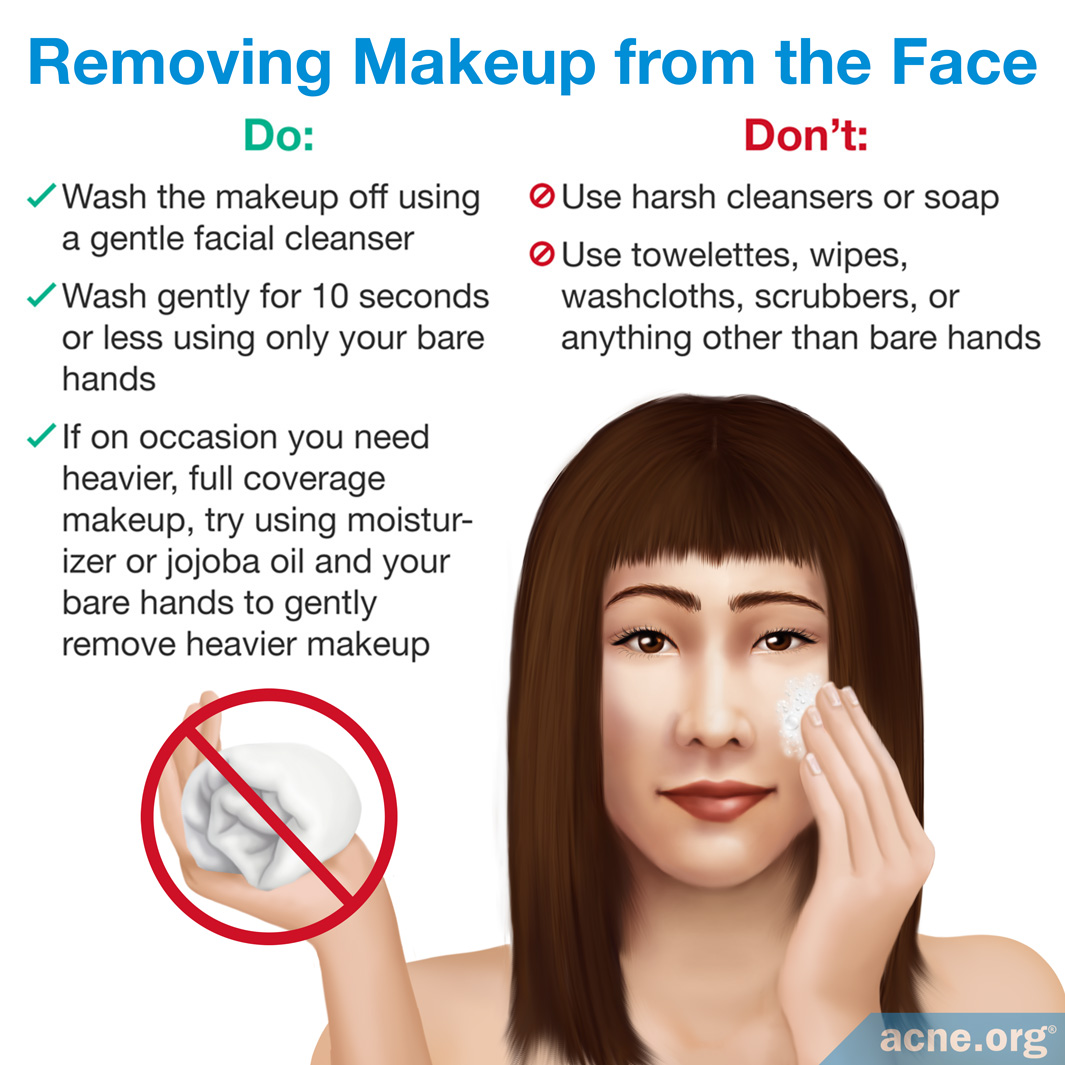


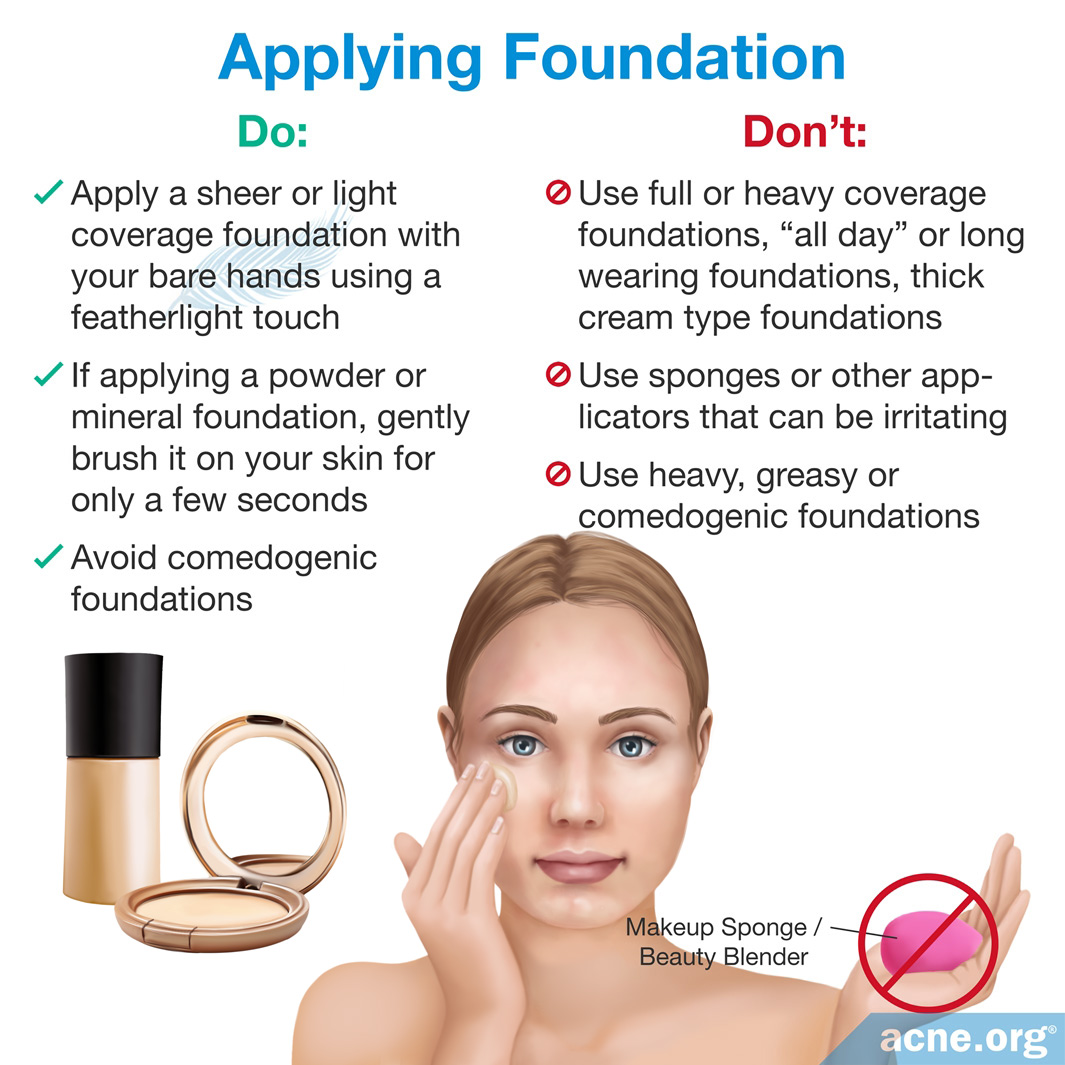
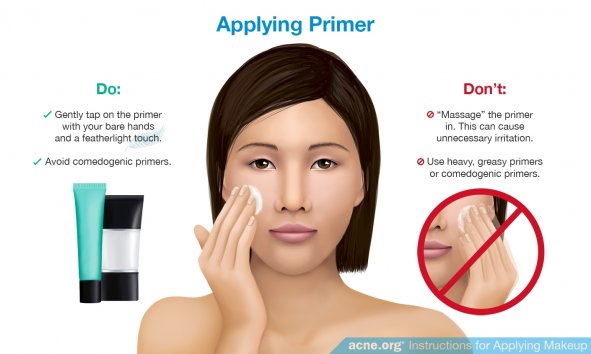
Closure
Thus, we hope this article has provided valuable insights into The Makeup Ingredients That Can Trigger Acne: A Comprehensive Guide. We appreciate your attention to our article. See you in our next article!